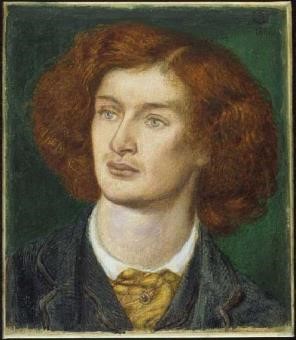|
De Hems
De Hems is a café, pub and oyster-house in the Chinatown area of London just off Shaftesbury Avenue. It made its name purveying oysters and now sells beers from the Low countries such as Grolsch and Heineken with Dutch food such as bitterballen and frikandellen. It is on the site of the Horse & Dolphin coaching inn which was built in 1685 and had been owned by bare-knuckle boxer Bill 'The Black Terror' Richmond in the early 19th century. This was rebuilt in 1890 by the accomplished pub architects, Saville and Martin, for the publican, Mr Crimmen. It was renamed The Macclesfield, being in Macclesfield Street, and was soon leased by a retired Dutch sea captain called "Papa" De Hem who ran it as an oyster-house, charging a shilling and fourpence ha'penny for a serving. It was patronised by '' fin-de-siècle'' literati such as the poet Swinburne, who travelled 10 miles daily to eat oysters at the long marble bar, and George Sims who wrote a quatrain in praise: The ... [...More Info...] [...Related Items...] OR: [Wikipedia] [Google] [Baidu] |
Publican
In antiquity, publicans ( Greek τελώνης ''telōnēs'' (singular); Latin ''publicanus'' (singular); ''publicani'' (plural)) were public contractors, in whose official capacity they often supplied the Roman legions and military, managed the collection of port duties, and oversaw public building projects. In addition, they served as tax collectors for the Roman Republic (and later the Roman Empire), farming the taxes of the Roman provinces, and bidding on contracts (from the Senate in Rome) for the collection of various types of taxes. Importantly, this role as tax collectors was not emphasized until late into the history of the Republic (c. 1st century BC). The publicans were usually of the class of equites. During the republican era, civil service, which was the size of modern middle-sized city governments, dealt with organising public policy for nearly thirty million people. The solution for the day-to-day operation of public administration was the extensive use of pr ... [...More Info...] [...Related Items...] OR: [Wikipedia] [Google] [Baidu] |
Proverb
A proverb (from la, proverbium) is a simple and insightful, traditional saying that expresses a perceived truth based on common sense or experience. Proverbs are often metaphorical and use formulaic language. A proverbial phrase or a proverbial expression is a type of a conventional saying similar to proverbs and transmitted by oral tradition. The difference is that a proverb is a fixed expression, while a proverbial phrase permits alterations to fit the grammar of the context. Collectively, they form a genre of folklore. Some proverbs exist in more than one language because people borrow them from languages and cultures with which they are in contact. In the West, the Bible (including, but not limited to the Book of Proverbs) and medieval Latin (aided by the work of Erasmus) have played a considerable role in distributing proverbs. Not all Biblical proverbs, however, were distributed to the same extent: one scholar has gathered evidence to show that cultures in which the Bibl ... [...More Info...] [...Related Items...] OR: [Wikipedia] [Google] [Baidu] |
Arthur Calder-Marshall
Arthur Calder-Marshall (19 August 1908 – 17 April 1992) was an English novelist, essayist, critic, memoirist, and biographer. Life and career Calder-Marshall was born in El Misti, Woodcote Road, Wallington, Surrey, the son of Alice (Poole) and Arthur Grotjan Marshall (later Calder-Marshall; 1875 –1958), a civil engineer. The elder Arthur was grandson of the sculptor William Calder Marshall (1813–1894). William Calder Marshall's father William Marshall (1780–1859), D.L. (Edinburgh), a goldsmith (including to the King in the early nineteenth century) and jeweller, had married Annie, daughter of merchant William Calder, Lord Provost of Edinburgh 1810-11, by his wife Agnes, a daughter of landed gentleman Hugh Dalrymple. The Marshall family were Episcopalian goldsmiths from Perthshire; the Calder family were merchants. A short, unhappy stint teaching English at Denstone College, Staffordshire, 1931–33, inspired his novel ''Dead Centre''. In the 1930s, Calder-Marshall a ... [...More Info...] [...Related Items...] OR: [Wikipedia] [Google] [Baidu] |
Quatrain
A quatrain is a type of stanza, or a complete poem, consisting of four lines. Existing in a variety of forms, the quatrain appears in poems from the poetic traditions of various ancient civilizations including Persia, Ancient India, Ancient Greece, Ancient Rome, and China, and continues into the 21st century, where it is seen in works published in many languages. This form of poetry has been continually popular in Iran since the medieval period, as Ruba'is form; an important faction of the vast repertoire of Persian poetry, with famous poets such as Omar Khayyam and Mahsati Ganjavi of Seljuk Persia writing poetry only in this format. Michel de Nostredame ( Nostradamus) used the quatrain form to deliver his famous prophecies in the 16th century. There are fifteen possible rhyme schemes, but the most traditional and common are ABAA, AAAA, ABAB, and ABBA. Forms *The heroic stanza or elegiac stanza consists of the iambic pentameter, with the rhyme scheme of ABAB or AAB ... [...More Info...] [...Related Items...] OR: [Wikipedia] [Google] [Baidu] |
George Robert Sims
George Robert Sims (2 September 1847 – 4 September 1922) was an English journalist, poet, dramatist, novelist and ''bon vivant''. Sims began writing lively humour and satiric pieces for ''Fun'' magazine and ''The Referee'', but he was soon concentrating on social reform, particularly the plight of the poor in London's slums. A prolific journalist and writer he also produced a number of novels. Sims was also a very successful dramatist, writing numerous plays, often in collaboration, several of which had long runs and international success. He also bred bulldogs, was an avid sportsman and lived richly among a large circle of literary and artistic friends. Sims earned a fortune from his productive endeavours but had gambled most of it away by the time of his death. Biography Sims was born in Kennington, London, England. His parents were George Sims, a prosperous merchant, and Louisa Amelia Ann Stevenson, president of the Women's Provident League. Sims was the oldest of si ... [...More Info...] [...Related Items...] OR: [Wikipedia] [Google] [Baidu] |
Marble
Marble is a metamorphic rock composed of recrystallized carbonate minerals, most commonly calcite or dolomite. Marble is typically not foliated (layered), although there are exceptions. In geology, the term ''marble'' refers to metamorphosed limestone, but its use in stonemasonry more broadly encompasses unmetamorphosed limestone. Marble is commonly used for sculpture and as a building material. Etymology The word "marble" derives from the Ancient Greek (), from (), "crystalline rock, shining stone", perhaps from the verb (), "to flash, sparkle, gleam"; R. S. P. Beekes has suggested that a " Pre-Greek origin is probable". This stem is also the ancestor of the English word "marmoreal," meaning "marble-like." While the English term "marble" resembles the French , most other European languages (with words like "marmoreal") more closely resemble the original Ancient Greek. Physical origins Marble is a rock resulting from metamorphism of sedimentary carbonate rocks, ... [...More Info...] [...Related Items...] OR: [Wikipedia] [Google] [Baidu] |
Algernon Charles Swinburne
Algernon Charles Swinburne (5 April 1837 – 10 April 1909) was an English poet, playwright, novelist, and critic. He wrote several novels and collections of poetry such as '' Poems and Ballads'', and contributed to the famous Eleventh Edition of the ''Encyclopædia Britannica''. Swinburne wrote about many taboo topics, such as lesbianism, sado-masochism, and anti-theism. His poems have many common motifs, such as the ocean, time, and death. Several historical people are featured in his poems, such as Sappho ("Sapphics"), Anactoria ("Anactoria"), and Catullus ("To Catullus"). Biography Swinburne was born at 7 Chester Street, Grosvenor Place, London, on 5 April 1837. He was the eldest of six children born to Captain (later Admiral) Charles Henry Swinburne (1797–1877) and Lady Jane Henrietta, daughter of the 3rd Earl of Ashburnham, a wealthy Northumbrian family. He grew up at East Dene in Bonchurch on the Isle of Wight. The Swinburnes also had a London home at Whiteha ... [...More Info...] [...Related Items...] OR: [Wikipedia] [Google] [Baidu] |
Intellectuals
An intellectual is a person who engages in critical thinking, research, and reflection about the reality of society, and who proposes solutions for the normative problems of society. Coming from the world of culture, either as a creator or as a mediator, the intellectual participates in politics, either to defend a concrete proposition or to denounce an injustice, usually by either rejecting or producing or extending an ideology, and by defending a system of values. Etymological background "Man of letters" The term "man of letters" derives from the French term '' belletrist'' or ''homme de lettres'' but is not synonymous with "an academic". A "man of letters" was a literate man, able to read and write, as opposed to an illiterate man in a time when literacy was rare and thus highly valued in the upper strata of society. In the 17th and 18th centuries, the term ''Belletrist(s)'' came to be applied to the ''literati'': the French participants in—sometimes referred to as ... [...More Info...] [...Related Items...] OR: [Wikipedia] [Google] [Baidu] |
Fin De Siècle
() is a French term meaning "end of century,” a phrase which typically encompasses both the meaning of the similar English idiom "turn of the century" and also makes reference to the closing of one era and onset of another. Without context, the term is typically used to refer to the end of the 19th century. This period was widely thought to be a period of social degeneracy, but at the same time a period of hope for a new beginning. The "spirit" of often refers to the cultural hallmarks that were recognized as prominent in the 1880s and 1890s, including ennui, cynicism, pessimism, and "a widespread belief that civilization leads to decadence.” The term is commonly applied to French art and artists, as the traits of the culture first appeared there, but the movement affected many European countries. The term becomes applicable to the sentiments and traits associated with the culture, as opposed to focusing solely on the movement's initial recognition in France. The ide ... [...More Info...] [...Related Items...] OR: [Wikipedia] [Google] [Baidu] |
Halfpenny (British Pre-decimal Coin)
The British pre-decimal halfpenny, (pronounced ), historically also known as the obol and once abbreviated ''ob.'' (from the Latin 'obulus'), was a denomination of sterling coinage worth of one pound, of one shilling, or of one penny. Originally the halfpenny was minted in copper, but after 1860 it was minted in bronze. In the run-up to decimalisation it ceased to be legal tender from 31 July 1969. The halfpenny featured two different designs on its reverse during its years in circulation. From 1672 until 1936 the image of Britannia appeared on the reverse, and from 1937 onwards the image of the Golden Hind appeared. Like all British coinage, it bore the portrait of the monarch on the obverse. "Halfpenny" was colloquially written ''ha’penny'', and "''d''" was spoken as "a penny ha’penny" or ''three ha’pence'' . "Halfpenny" is a rare example of a word in the English language that has a silent ' f'. Before Decimal Day in 1971, sterling used the Carolingian m ... [...More Info...] [...Related Items...] OR: [Wikipedia] [Google] [Baidu] |

_abbatiale_1.jpg)
.jpg)





